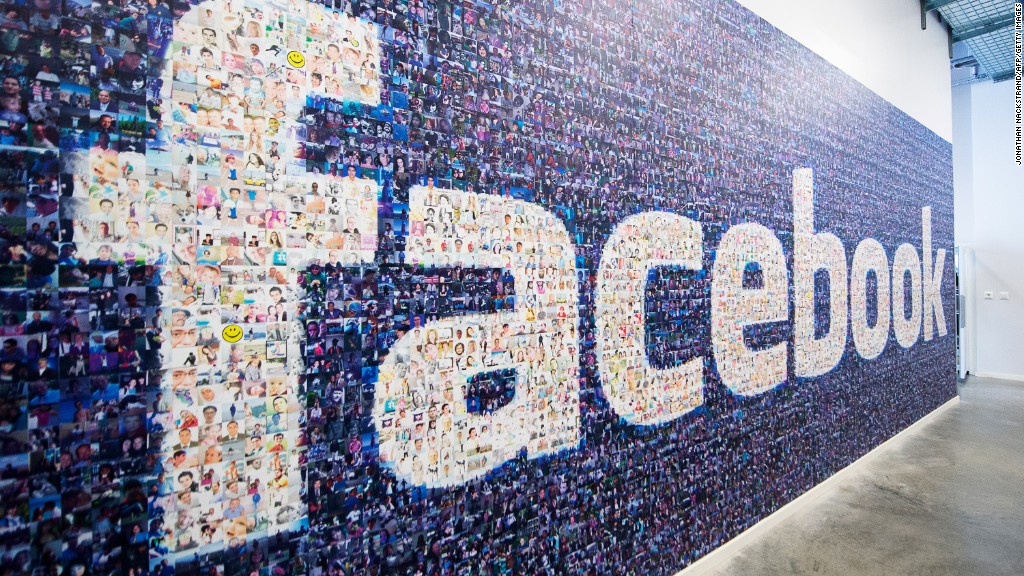
What happens to the data you post on Facebook? And who's responsible for how those personal details are used?
Facebook (FB) is under intense pressure to answer these questions — and more — after it admitted that a company linked to President Donald Trump's campaign had accessed and improperly stored a huge trove of its user data.
The controversy erupted as UK media and The New York Times reported that data analysis firm Cambridge Analytica tried to influence how Americans voted using information gleaned from millions of Facebook profiles.
Here's what you need to know.
What happened?
Facebook said it gave permission to University of Cambridge psychology professor Aleksandr Kogan to harvest information from users who downloaded his app — "thisisyourdigitallife."
The app offered a personality test. But Facebook users who downloaded the app also gave the professor permission to collect data on their location, their friends and content they had "liked."
That was allowed under Facebook's rules at the time.
The New York Times, however, reported that Kogan provided that data — which included information from over 50 million profiles — to Cambridge Analytica, breaching Facebook's rules.
Tell us: Are you planning to quit Facebook? Why or why not?
Cambridge Analytica was working to develop techniques that could be used to influence voters.
Facebook said it asked Cambridge Analytica to delete the data in 2015, but learned several days ago from "reports" that not all of it had been purged.
Cambridge Analytica said that the data set revealed by The New York Times was not used "as part of the services it provided to the Donald Trump 2016 presidential campaign."
The company's methods came under further scrutiny late Monday after a British television channel aired a report showing CEO Alexander Nix discussing potential bribery and entrapment of politicians.
In the report, Nix is seen suggesting the encounters could be filmed and posted to the internet.
Cambridge Analytica said in a statement that the undercover Channel 4 report was "edited and scripted to grossly misrepresent the nature of those conversations and how the company conducts its business."
Nix said the company does not engage in bribery or entrapment.
Related: Facebook is facing an existential crisis
Why does this matter?
Facebook has been unable to shake off questions over its role in the 2016 presidential election.
CEO Mark Zuckerberg initially expressed skepticism that Facebook could have been used to influence voters, but a series of revelations over Russian meddling have caused the company to make big changes in recent months.
It has sought to crack down on fake news, undermine the business model used by trolls and make political advertising more transparent.
Related: Former Cambridge Analytica contractor: 'I'm not out to get Facebook'
Zuckerberg now has a whole new set of questions to address: Was Facebook transparent enough with users about how their information would be used? Should it have done more to keep tabs on how third parties were using data?
There could be major implications for the company's business model, which is based on selling user data to app developers and advertisers.
Lawmakers and regulators have already seized on the controversy.
Massachusetts Attorney General Maura Healey said Saturday that her office is opening an investigation into Facebook and Cambridge Analytica. The UK Information Commissioner's Office is also investigating, as is the European Union parliament.
"This is a big deal. ... The privacy violations there are significant," Republican Senator Jeff Flake told CNN. "The question is, who knew it? When did they know it? How long did this go on?"
Facebook's stock has been pummeled amid the fiasco. The shares tumbled nearly 7% Monday, shaving about $37 billion off the value of the company.
What happens next?
Lawmakers have called on Zuckerberg to explain his company's actions.
Amy Klobuchar, a Democrat who serves on the Senate Judiciary Committee, said on Saturday that "Zuckerberg needs to testify."
"This is a major breach that must be investigated," she said on Twitter. "It's clear these platforms can't police themselves."
Related: Facebook's value plunges $37 billion
The UK's Information Commissioner's Office said Monday that it was trying to obtain a warrant to search the offices of Cambridge Analytica in London.
Facebook also said that Cambridge Analytica had agreed to a digital forensic audit of its servers and systems in an attempt to show that it deleted certain Facebook data it held on some American users.
Auditors hired by Facebook visited Cambridge Analytica's London office on Monday evening, but stood down at the request of the Information Commissioner's Office.
Related: Mark Zuckerberg under fire over data controversy
The revelations are likely to fuel calls for more regulation of tech companies. The industry is already scrambling to prepare for tough new data privacy rules in Europe, and similar measures could be considered elsewhere.
-- Chris Isidore, Sherisse Pham, Daniel Shane and Donie O'Sullivan contributed to this report.

